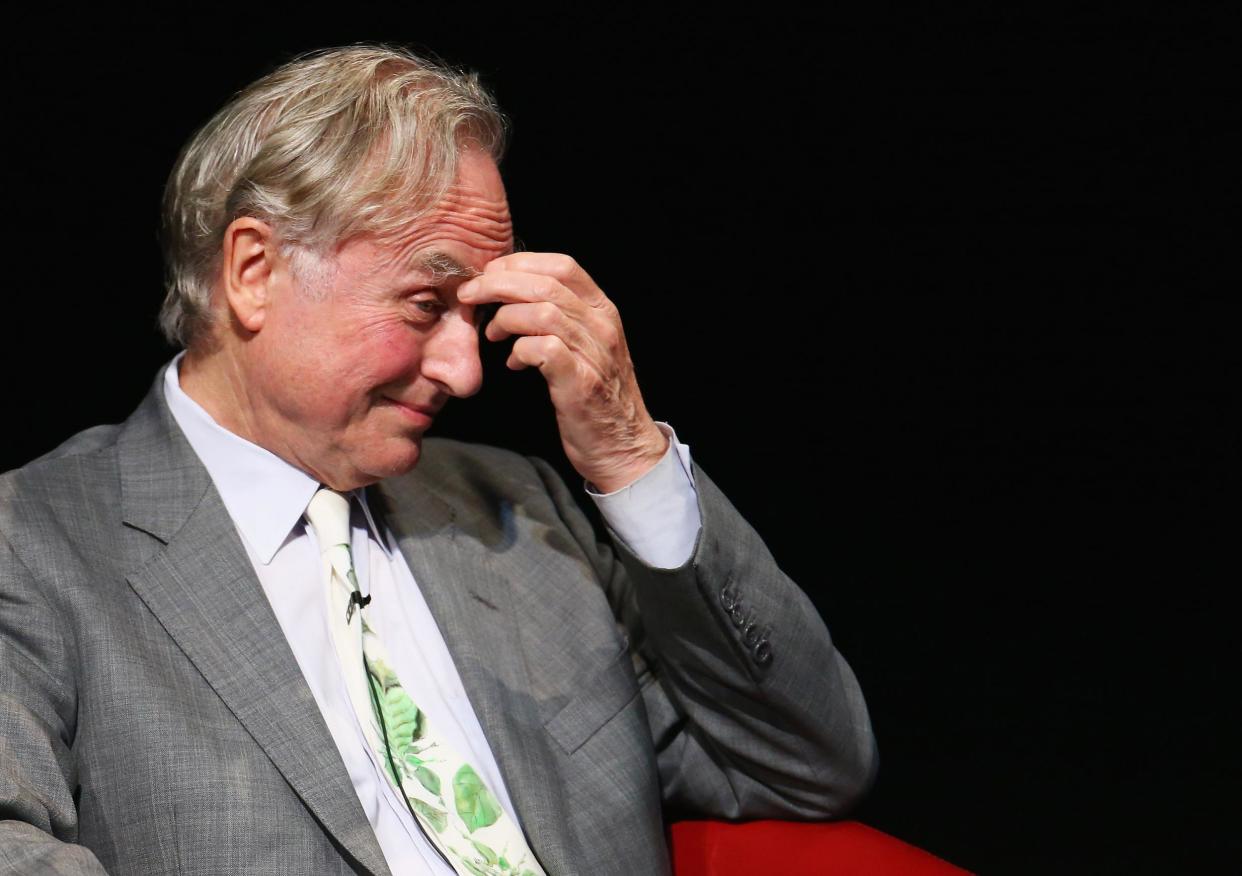If Richard Dawkins can’t understand why he was no-platformed, then maybe he’s not as smart as he thinks he is

On Thursday KPFA Radio in Berkeley, California, sent emails to hundreds of people with tickets to hear Richard Dawkins speak, explaining the event had been cancelled due to Dawkins’s “abusive… tweets and other comments on Islam”. Professor Dawkins responded by saying: “I am known as a frequent critic of Christianity and have never been de-platformed for that. Why do you give Islam a free pass? Why is it fine to criticise Christianity but not Islam?”
The answer to is that Islam rarely gets a free pass in today’s world, and certainly not in today’s Britain. A survey revealed over 50 per cent of Britons would be concerned if a mosque were built in their area versus 15 per cent were a church to be opened. In the UK, a mosque is attacked on average once a week and figures from the London Mayor’s office reveal 1219 reported Islamophobic hate crimes in 2016 alone.
And yet Dawkins refuses to comment on Islamophobia, dismissing it as a “non-word”, a fiction designed to silence intellectuals like himself: “It’s a public relations coup that somebody has achieved by inventing this word. It’s a ridiculous word; it should never be used.”
Significantly, the way that Dawkins speaks about Islamophobia, as a baseless, non-referential concept, is not at all dissimilar to the way he characterises god, or faith, as something that exists, “only in the form of a meme with high survival value or infective power, in the environment provided by human culture” (from The Selfish Gene). It would appear that he finds it intolerable that others should treat their subjective experience as evidentially valid, be these religious experiences or the “speaking as a woman” type of pronouncement often lumped together as “identity politics”, something Professor Dawkins has condemned as “ one of the great evils of our age”.
“Objective truth is oppressive,” he tweeted parodically on 30 June. “It’s true for me” encapsulated the postmodern ethos… I despise postmodernism.” “I detest any tendency to treat a person on the basis of a group to which they belong,”
The trouble is that by invalidating experience, whether that of a group or an individual, as a basis for argument, Dawkins effectively invalidates most of the empirical tradition that he, as one of the self-styled guardians of the values of the enlightenment, lays claim to. Indeed, when it comes to the subject of Islam he has famously rejected the need even for textual evidence, tweeting that: “Of course you can have an opinion about Islam without having read the Qu’ran.” The necessary riposte to such statements is that Dawkins can get away with such opinions because of the tribe that he belongs to – that of white, upper-middle class, male super-intellectuals. The privilege garnered from membership of this elite gives him license to claim to be the voice of objectivity and universality, capable, as it were, of comprehending the rest of human experience from his scientific armchair. Those execrated others whom he critiques as being reliant on “the postmodern ethos” are in fact merely asserting the validity of their own views in much the same way as he is – referring to textual sources, logic, analysis, and, though he may deny it, personal experience.
Experience of racism and prejudice is something white males are, perhaps enviably, forever denied access to. By refusing to accept the testimonies of Muslims, however, refusing even to believe in the existence of Islamophobia, Professor Dawkins forsakes rationality in favour of a false opposition between reason and experience which, in actuality, comes down to whose experience we are talking about – that of white males, or that of others.
I do not believe that Professor Dawkin’s blind spot regarding Islamophobia is due to casual insouciance or political naiveté, but to a combination of ignorance and intellectual arrogance that results directly from his own group identity, that of a hyper-advantaged white male, a modern day emperor of knowledge. He has, of course, every right to criticise whomever and whatever pleases, but in his refusal to acknowledge the daily violation of the human rights of millions of Muslims, he allies himself not with Darwin and Kant, but with the white supremacist far right, a fellowship he could severe quite swiftly by using his commodious public platform to condemn Islamophobia.
I do not believe Professor Dawkins’s invitation to speak should have been rescinded at such short notice, but I do believe he should use his considerable intellectual resources to understand why.
Rajeev Balasubramanyam is a novelist

 Yahoo News
Yahoo News 
